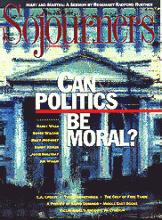A young boy once approached Vermont's former governor Madeleine Kunin and asked, "Can boys be governor too?" It's the kind of anecdote that still draws smiles. But a host of women are determined this year to see that such irony becomes history. In U.S. politics, 1992 is, after all, the Year of the Woman.
Of course, 1984 was similarly labeled when Geraldine Ferraro became the Democratic vice presidential nominee. And there were rumblings of 1990 being a political year for women as well. But this year is different--and even the cynics admit that the times are ripe for important strides.
A record number of women are running for political office. Anti-incumbency fever and congressional redistricting have paved the way for change. And many female candidates are getting mileage out of the outrage generated among women by the grilling that Anita Hill received by the 14 men who sat on the Senate Judiciary Committee during the Clarence Thomas confirmation hearings last fall.
This year, perhaps for the first time, being a woman is not seen as an automatic liability for a candidate. In fact, it is a year when being an "outsider" to the political processor being perceived as one--carries its advantages.
It is being said of several women candidates--for example, Lynn Yeakel, the Democratic nominee for senator from Pennsylvania--that they "came out of nowhere." Indeed, Yeakel began with no campaign experience, virtually no name recognition, and one percent support in the polls--and went on to win over four opponents (including Pennsylvania's lieutenant governor) in the Democratic primary. But "nowhere" for Yeakel is the executive directorship of Women's Way, an organization she helped to found that has raised up to $2 million a year to aid battered women.
Read the Full Article

